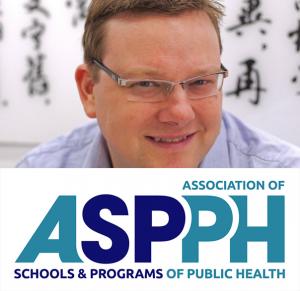By Staff Reports
The University of Hawaiʻi at Mānoa’s Office of Public Health Studies has signed on as a founding member of the newly formed Association of Schools and Programs of Public Health (ASPPH).
ASPPH connects public health schools and programs accredited by the Council on Education for Public Health (CEPH). Officially launched August 1, 2013, ASPPH is the successor to the Association of Schools of Public Health (ASPH), which represented the 50 CEPH-accredited public health schools and eight associate members.
Said Director of the Office of Public Health Studies Jay Maddock, “Joining this Association will help ensure that our students receive a world-class education in public health through access to the newest tools and resources and have access to fellowships only open to member institutions. Also, our faculty will have a voice on the direction of public health education and policy nationwide and will be able to represent our unique geography and diversity.”
Added ASPPH President and CEO Harrison Spencer, “This is a seminal moment in CEPH-accredited public health education. Representing both accredited schools and programs of public health gives the association and our members an opportunity to strengthen public health education, research, teaching and practice.”
The move to bring schools and programs under one umbrella has been embraced by both CEPH-accredited schools and programs of public health. To date, more than one-third of the 101 CEPH-accredited public health programs have joined as founding members of ASPPH, which will continue to work to bring in all CEPH-accredited programs of public health.
CEPH is the independent agency recognized by the U.S. Department of Education as the accrediting body for public health schools and programs. Accreditation is a rigorous peer-review process designed to assure quality education and training. The accreditation “seal of approval” means graduates are prepared to meet the demands of the 21st-century workforce.
The decision to create a new association came after a two-year “listening campaign” that included focus groups and in-depth conversations with representatives of both schools and programs. “It is clear they have much in common and will benefit by working closely together,” said Dean John Finnegan of the University of Minnesota School of Public Health and Chair of the ASPPH Board of Directors. “With the new membership of both CEPH-accredited schools and programs, we will be better able to deliver on our promise to be trusted advisors to our public health partners.”
Benefits of becoming an ASPPH member include one voice for accredited public health education, the centralized application service (SOPHAS), a strong representation on policy and advocacy, and data resources.
For a list of founding members, see http://www.asph.org/document.cfm?page=1237.
For more information, visit: http://www.asph.org/index.cfm


